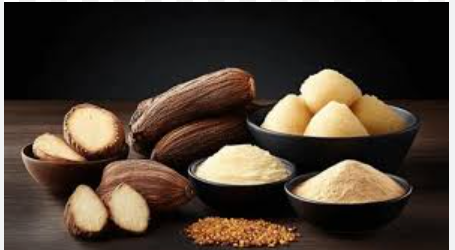Shea nut prices in Nigeria are stabilising and nearing pre-ban levels after an initial dip triggered by the Federal Government’s decision to halt the export of raw shea nuts. The policy, which is part of the Renewed Hope Agenda and aligns with the Nigeria First Economic Policy, aims to boost domestic processing, strengthen local industries, and position Nigeria to capture more value in the $6.5 billion global shea market.
Before the export ban, shea nuts traded at about N850 per kilogramme. Prices plunged to roughly N570 per kilogramme immediately after the announcement, reflecting market uncertainty as traders and middlemen adjusted to the new reality. However, by mid-September, prices had recovered to around N710 and rose further to N800 per kilogramme by the end of the month. As of early October, average market prices stand at approximately N1,000 per kilogramme, signalling renewed confidence and a stronger balance between supply and demand.
Nigeria supplies more than one-third of the world’s shea, yet historically captures less than one per cent of the global market value due to its heavy reliance on raw exports with little domestic processing. The new policy is changing that dynamic by keeping raw materials within the country, revitalising more than 20 local processing plants that had previously been operating below 30 per cent capacity. This shift is already creating new opportunities for small businesses and rural communities, strengthening value chains, safeguarding jobs, and laying the groundwork for industrial growth.
Industry groups have welcomed the decision, noting that the ban is helping to stabilise the market and improve planning for processors. According to representatives from the Nigeria Agribusiness Group, the policy is enabling factories to operate closer to full capacity while ensuring steady demand for farmers and better income for rural women involved in shea harvesting. They emphasised that, in the past, unregulated raw exports caused unpredictable price swings and squeezed local processors out of the market.
The move also aligns with the 30% Value Addition Bill, championed by the Raw Materials Research and Development Council (RMRDC) and passed by the Senate in July. Once it becomes law, the bill will mandate that no raw material of Nigerian origin can be exported without at least 30 per cent domestic processing, further strengthening local industries and job creation efforts.
Stakeholders believe that combining the export ban with the forthcoming legislation will create a stronger incentive structure for value addition, boost industrial capacity, and accelerate Nigeria’s transition from a raw material exporter to a manufacturing-driven economy.
The Federal Ministry of Industry, Trade and Investment is leading follow-up engagements with processors, traders, and farmer groups to ensure smooth policy implementation. Additionally, the Presidential Food Systems Coordinating Unit will conduct a rapid assessment in November across five major shea-producing states to collect updated data, identify bottlenecks, and guide future policy actions.
The government says the export ban is not merely about regulating trade but about restructuring Nigeria’s economic base. By anchoring raw materials locally, supporting processors, and strengthening value chains, the policy is expected to make small and medium enterprises (SMEs) in the shea industry more competitive, improve rural livelihoods, and drive inclusive economic growth.










